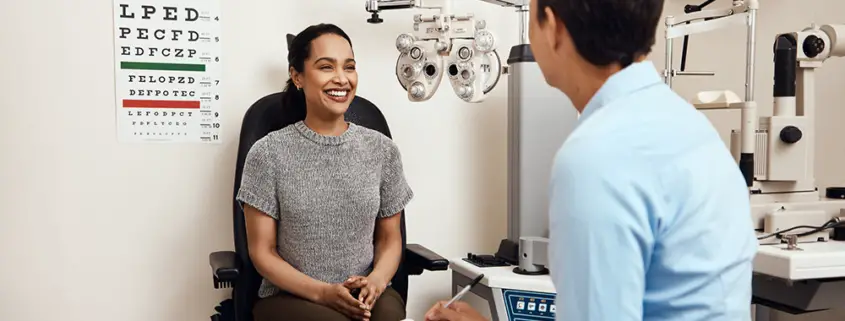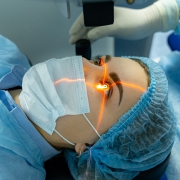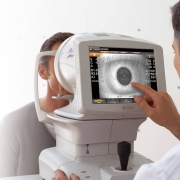LASIK Eye Surgery FAQs: Your Most Pressing Questions Answered
LASIK eye surgery has gained immense popularity as a safe and effective procedure for vision correction. However, it’s natural to have questions and concerns before undergoing any surgical procedure, especially one that involves your eyes. In this article, we aim to address the most frequently asked questions about LASIK eye surgery and provide you with comprehensive answers to help you make an informed decision about this life-changing procedure.
- What is LASIK eye surgery?
- Am I a good candidate for LASIK?
- Does LASIK hurt?
- How long does the LASIK procedure take?
- What is the recovery process like?
- Are there any potential risks or complications associated with LASIK?
- How long does the LASIK vision correction last?
- Will I still need glasses or contact lenses after LASIK?
- What is the cost of LASIK?
- How do I choose a qualified LASIK surgeon?
1. What is LASIK eye surgery?
LASIK (Laser-Assisted In Situ Keratomileusis) is a refractive surgery that uses a laser to reshape the cornea, the clear front surface of the eye. By correcting the shape of the cornea, LASIK aims to improve the eye’s focusing power, effectively treating nearsightedness, farsightedness, and astigmatism.
For more information read our article: What is lASIK Eye Surgery
2. Am I a good candidate for LASIK?
The eligibility for LASIK eye surgery depends on several factors, including your overall eye health, corneal thickness, and prescription stability. A comprehensive eye examination conducted by an experienced ophthalmologist will determine whether you are a suitable candidate for LASIK. Generally, individuals over 18 years of age with stable vision and good general health are eligible.
For more information read our article: 6 Signs You’re A Good LASIK Candidate
3. Does LASIK hurt?
During LASIK surgery, your eye surgeon will administer numbing eye drops to ensure your comfort. While you may experience some pressure or minor discomfort during certain stages of the procedure, the overall experience is typically described as tolerable rather than painful. After the surgery, any discomfort or dryness is generally temporary and can be managed with prescribed eye drops.
4. How long does the LASIK procedure take?
LASIK surgery itself is relatively quick, typically lasting around 15 minutes per eye. However, you should plan to spend a few hours at the surgical center or clinic to account for pre-operative preparations, post-operative instructions, and recovery time after the procedure.
5. What is the recovery process like?
The recovery process after LASIK eye surgery is usually swift. You can expect an improvement in your vision within the first 24 to 48 hours, and most patients are able to resume their normal activities within a day or two. However, it’s important to follow your surgeon’s post-operative instructions, which may include wearing protective eyewear, avoiding strenuous activities, and using prescribed eye drops to aid healing.
6. Are there any potential risks or complications associated with LASIK?
While LASIK eye surgery has a high success rate, like any surgical procedure, it does carry some risks. Potential risks and complications include dry eyes, night vision disturbances, halos, glare, undercorrections, overcorrections, and flap complications. However, serious complications are rare, and the majority of patients experience significant improvement in their vision with minimal side effects.
For more information read our article: What are the LASIK Risks and Complications
7. How long does the LASIK vision correction last?
LASIK provides long-lasting vision correction for most individuals. While the procedure aims to correct refractive errors permanently, it’s important to note that age-related changes or other factors may still affect your vision over time. However, any changes that occur after LASIK can often be addressed with additional procedures or adjustments.
8. Will I still need glasses or contact lenses after LASIK?
LASIK eye surgery aims to reduce or eliminate the need for glasses or contact lenses. While many patients achieve 20/20 vision or better, the results can vary depending on individual factors. Some individuals may still require glasses or contact lenses for certain activities such as reading fine print or driving at night. Your eye surgeon can provide a realistic expectation of the outcomes based on your specific situation.
9. What is the cost of LASIK?
The cost of LASIK eye surgery can vary depending on various factors, including the geographic location, the technology used, the reputation of the surgeon, and the specific requirements of your case. It’s best to consult with multiple reputable clinics or eye centers to get a clear understanding of the costs involved and any financing options available.
For more information read our article: How Much Does LASIK Cost?
10. How do I choose a qualified LASIK surgeon?
Choosing a qualified and experienced LASIK surgeon is crucial for a successful outcome. Look for a surgeon who is board-certified, has a solid reputation, and specializes in refractive surgery. Read patient reviews, ask for recommendations, and schedule consultations to discuss your concerns and assess the surgeon’s expertise and professionalism.
Conclusion
LASIK eye surgery offers a life-changing opportunity for vision correction, providing freedom from glasses and contact lenses for many individuals. By addressing the most frequently asked questions about LASIK, we hope to have provided you with a clearer understanding of the procedure, its benefits, and what to expect before, during, and after the surgery. However, it’s essential to consult with a qualified eye surgeon to evaluate your specific case and receive personalized advice tailored to your needs.









